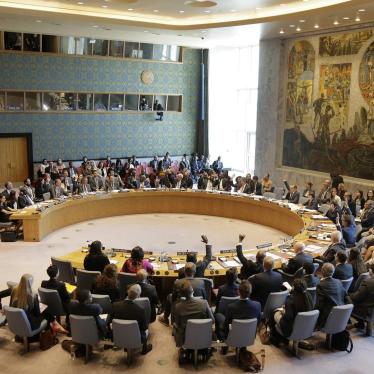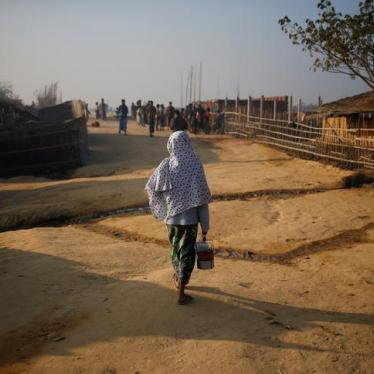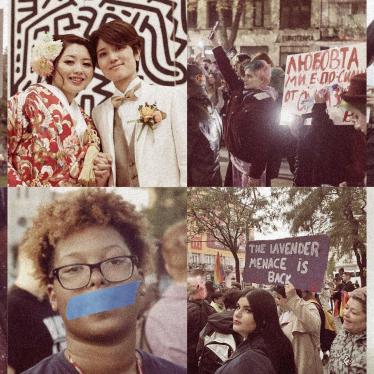Statement by Human Rights Watch and Legal Action Worldwide at the International Conference on Ending Sexual and Gender-Based Violence in Humanitarian Crises in Oslo, Norway on May 23, 2019:
Thank you for the opportunity to speak today.
Human Rights Watch and Legal Action Worldwide advocate for a comprehensive and survivor-centered approach to addressing sexual and gender-based violence.
Women's participation at all levels of leadership and decision-making is critical, including in prevention, design and delivery of aid, and in peacebuilding and accountability mechanisms.
Emphasis should also be placed on recruitment and retention of women in the legal and security sectors, and gender-informed training and support for police, judges, and prosecutors.
Investing in local women’s organizations and reversing the shrinking space for women human rights defenders is essential. Donors should support empowered, women-led survivor groups and coalitions. For example, Legal Action Worldwide supports Shanti Mohila, a group of 400 Rohingya women who have made a victim submission to International Criminal Court.
Support for post-rape care is critical in the initial days of a crisis when services are the most urgently needed and time-sensitive, yet the least accessible. The Minimum Initial Services Package on reproductive health in emergencies should be implemented in full.
Additionally, legal services for survivors are at their most effective in the immediate aftermath of a crisis, in terms of the quality of evidence gathered and the mental health benefits of being listened to by professionals specializing in SGBV.
Member states should support short-term aid, as well as long-lasting legal assistance and healthcare programs. Comprehensive sexual and reproductive healthcare includes post-SGBV (including rape) care, emergency contraception, safe abortion, long-acting means of contraception, and pre- and post-natal care. Such care is lifesaving, for example, by preventing maternal mortality.
We have found huge gaps with the availability, accessibility, quality, and length of medical and psychosocial care for survivors. In the Central African Republic and in Burundi refugee camps in Tanzania we interviewed many women who only had one interaction with a counsellor. All health services should also be responsive to the unique needs of adolescent girls, persons with disabilities, LGBTQ, and men and boys survivors.
We call on member states to prioritize transformative justice for survivors of SGBV. A critical gap is the lack of adequate witness and victim protection measures, which hinders survivors' ability to participate in proceedings and secure justice. Support should also include funding for efforts to hold perpetrators – from foot soldiers through to senior officials – to account at national, transnational and international levels. Justice should be tailored to individual survivors and their communities: including reparations and truth-seeking processes, which can be vital for rehabilitation and repair.
Thank you.








